Field Programs
ASR’s Whole Community Approach
Most Haitian children enter school lacking basic skills and are ill-prepared emotionally for the radical changes they will face at school both academically and socially. This unpreparedness stems chiefly from behavior patterns at home. Domestic concerns mark all strata of Haitian society, especially in the at-risk areas where ASR works.
A plethora of research studies points to the need for parents and communities-at-large to be positively engaged with children from birth onwards to assure social and professional success in their lives. Thus, behavioral training for adult caretakers is essential to the health of a community’s children and to the long-term future of the community.
ASR’s Whole Community Approach develops self-reliance for all participants at all ages simultaneously. In addition to providing a strong and supportive educational experience for children, including special classes in computer training and English language proficiency, ASR provides every family member with regular in-home medical care and social services. We have found that our inclusive educational, medical, and social health model makes a profound difference to the security and evolution of individuals, families, and the community as a whole.
To further instill trust and promote economic growth, almost all ASR teachers, trainers and medical personnel are hired from within the community. Additionally, ASR forms partnerships with various other non-profits to provide vocational training, housing construction, food security, and other infrastructure needs. When the community’s general population is uplifted, every child benefits.
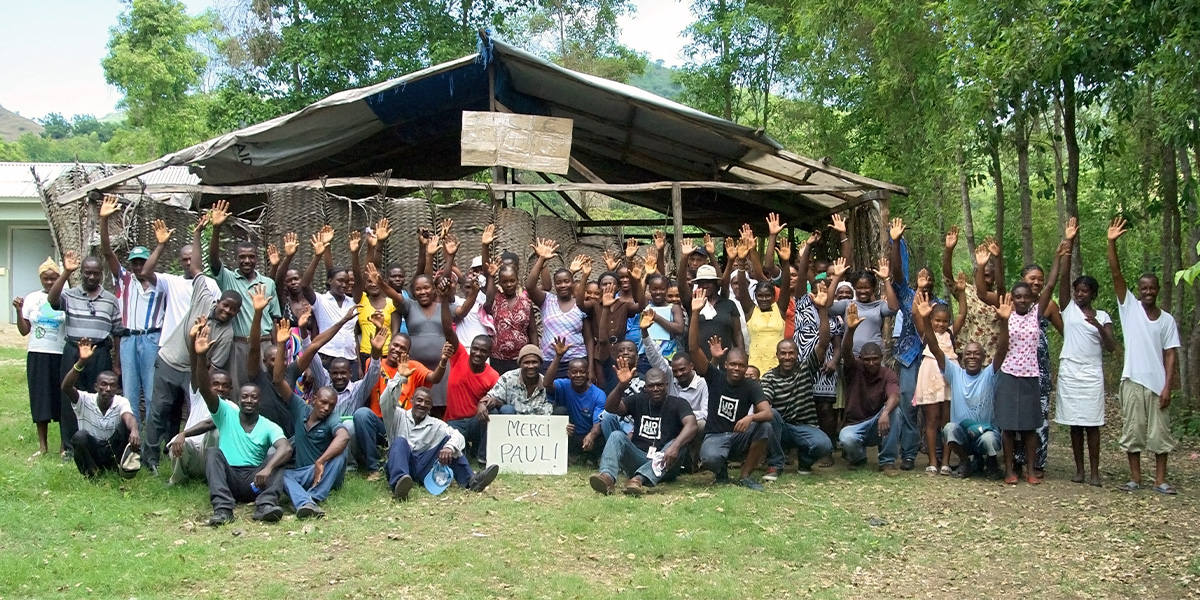
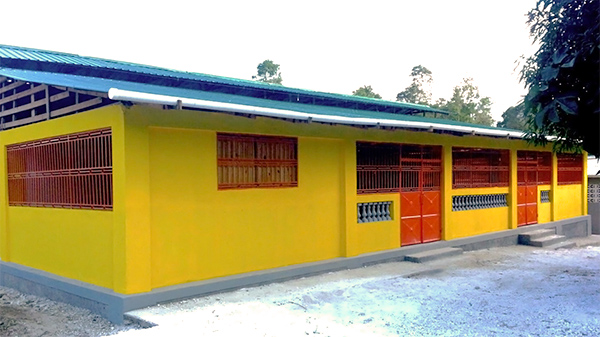
Aid Still Required Academy (K-6)
Cuperlier, Deuxieme Plaine, Haiti
“Education is the most powerful weapon you can use to change the world.”
—Nelson Mandela
Transforming expectations and creating new pathways
For generations, children in Deuxieme Plaine have inherited lives of menial labor with little access to pathways leading anywhere else. Before ASR’s arrival in 2016, income in Deuxieme Plaine (DP) averaged $1–$2/day.
When ASR committed to build and operate the Aid Still Required Academy, only about 5% of the population in the area was literate and most of the children had had little or no schooling. Since this is a community project, instead of bringing in outside teachers ASR trained literate members of the community through Haiti’s national three-year teacher accreditation program and has provided ongoing teacher workshops and in-class training. Over the course of the past few years, the quality of teaching at the school has risen dramatically, as evidenced by a full 90% of students electing to attend a rigorous, entirely optional, 8-week summer session, and by every graduating student passing the entrance exams into 7th grade and beyond.
About 100 farm children currently attend the ASR Academy, 30 of whom are orphans. All students are on scholarship and benefit from:
- Classes in English language
- Solar-powered computer lab and training
- Trilingual library
- After-school and Saturday morning tutoring
- Daily snack and lunch (for some this provides their only meal for the day)
The presence of the school has inspired other NGOs to invest substantially in this community. Food for the Poor has provided training and equipment for hundreds of community members in fishing, agriculture, and animal husbandry and has built more than 100 new, US-grade homes. In addition, Food for the Poor currently provides a daily lunch for students and teachers. Non-profit OneEgg contributes a boiled egg each morning for each student and teacher so that they have a reliable source of protein; The Desgranges Medical Clinic has supplied mobile services to augment ASR’s medical support team; Waka Waka has provided each family with a solar lamp for studying and charging phones; and Digicel Group has furnished the entire school with desks, chairs, tables, and benches.
The successes at the ASR Academy, coupled with the general transformation of its community through vocational initiatives and medical and social programs, have made replication obvious and feasible. There are thousands of communities in Haiti that would similarly benefit from this whole community approach.
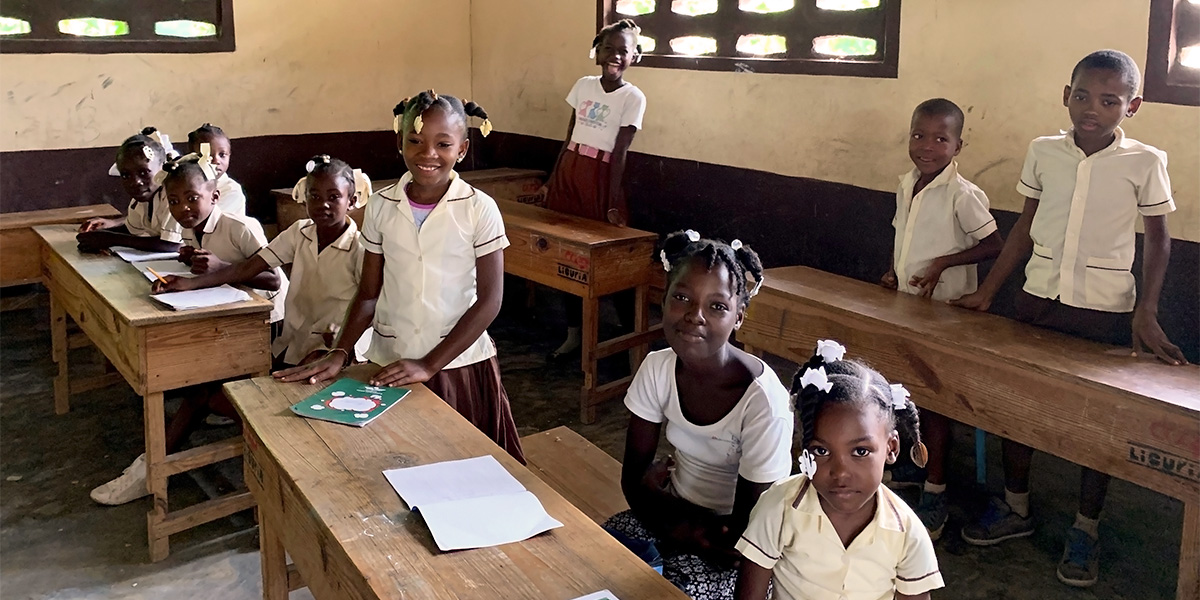
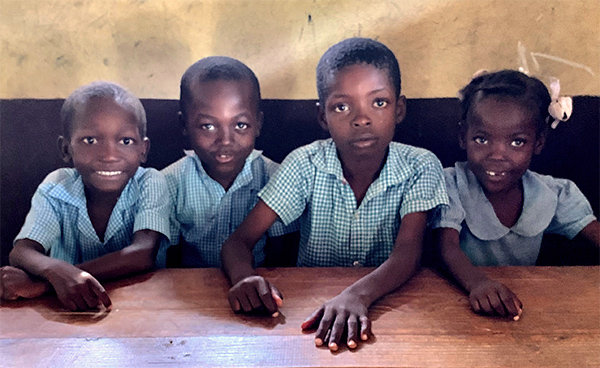
Espoire Pour Demain School (K-6)
Ravine Parc, Deuxième Plaine, Haiti
Empowering communities to advance themselves
As with all communities where ASR works, Ravine Parc is one of Haiti’s most neglected and impoverished. When we began operations there in August, 2019, our first steps were to establish a strong teaching staff for its K-6 grade school and provide much-needed in-home medical care to all families.
As with our other schools, the teachers in Ravine Parc come from and live in the community. We’ve found that employing locals as teachers inspires a natural motivation from them, which translates positively throughout the community. However, employing locals from vulnerable communities often means the teachers are not well educated or trained. Through bi-monthly teacher training weekends and in-class guidance by ASR’s pedagogy leader, our teachers are further educated and challenged to become their best.
Ravine Parc is an isolated community with no resident services. Most people there suffer from innumerable challenges and have had little to no interaction with doctors or nurses. In-home medical care has relieved many of the residents’ physical problems. Providing medical services to new ASR communities allows us to build trust as we expand our assistance across the community.
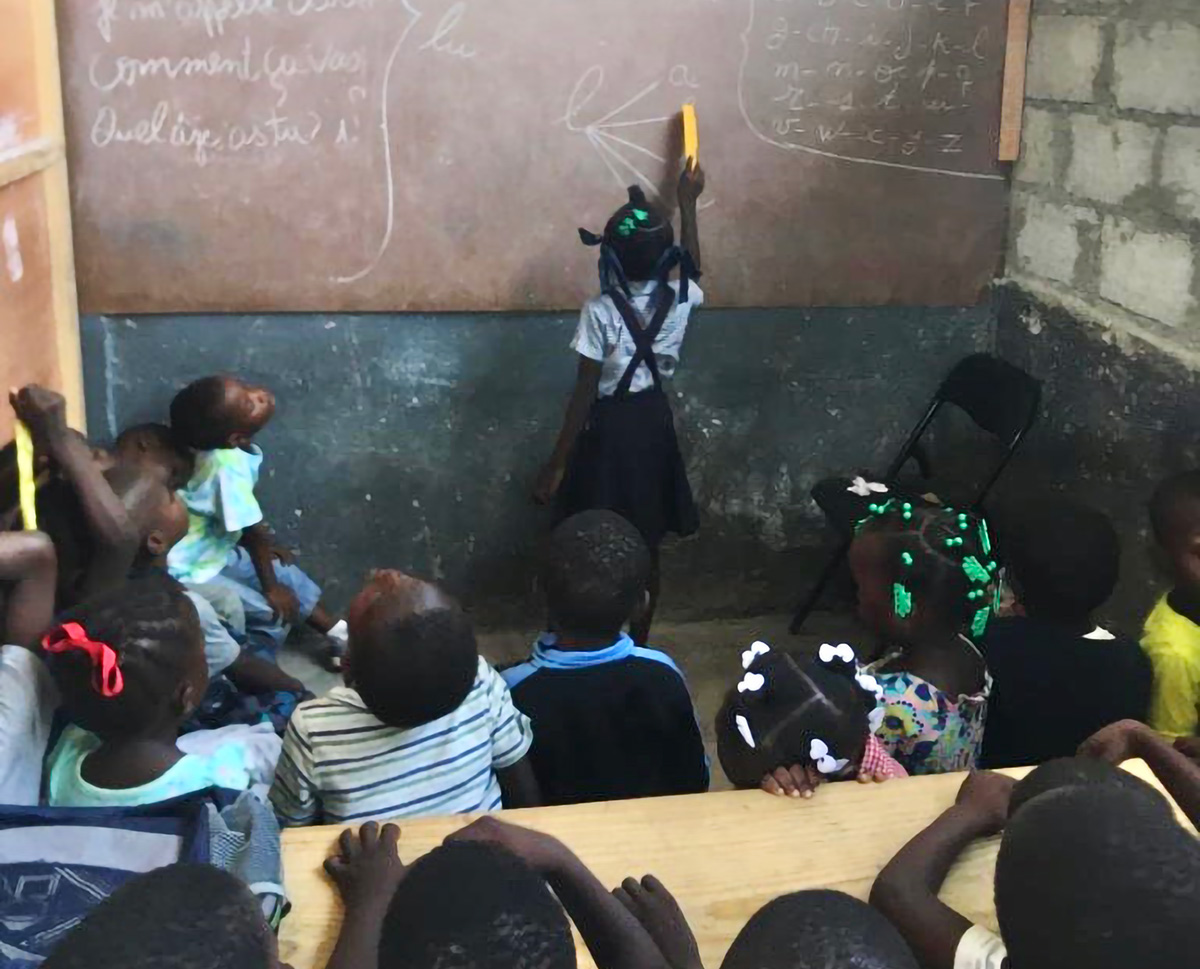
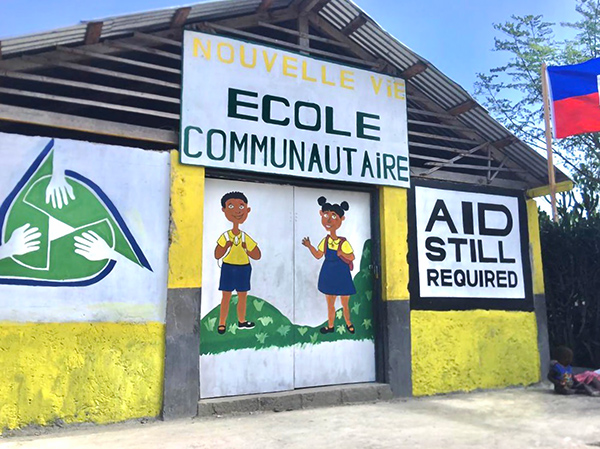
Nouvelle Vie School (K-6)
Reno/Delma, Les Cayes, Haiti
Hope through education in Haiti’s most violent communities
Children growing up in brutal areas like Reno/Delma often have no opportunity to attend school regardless of how much they want to learn. When we opened the Nouvelle Vie school in September, 2019, one hundred children immediately enrolled—instantly taking the school to full capacity.
ASR originally brought adult education to this community beginning in 2015. At that time, the literacy rate was alarmingly low and the average income even more depressed than in most Haitian neighborhoods. Community members agreed that their most pressing need was adult literacy and vocational training, and requested ASR provide them (see ALPHA program below).
Since 2015, hundreds of participants have graduated through four levels of literacy education and three levels of sewing mastery. As a result, when we opened the Nouvelle Vie school for their children in 2019, most parents became directly involved in their children’s learning—a novel reaction to a new school in a Haitian community.
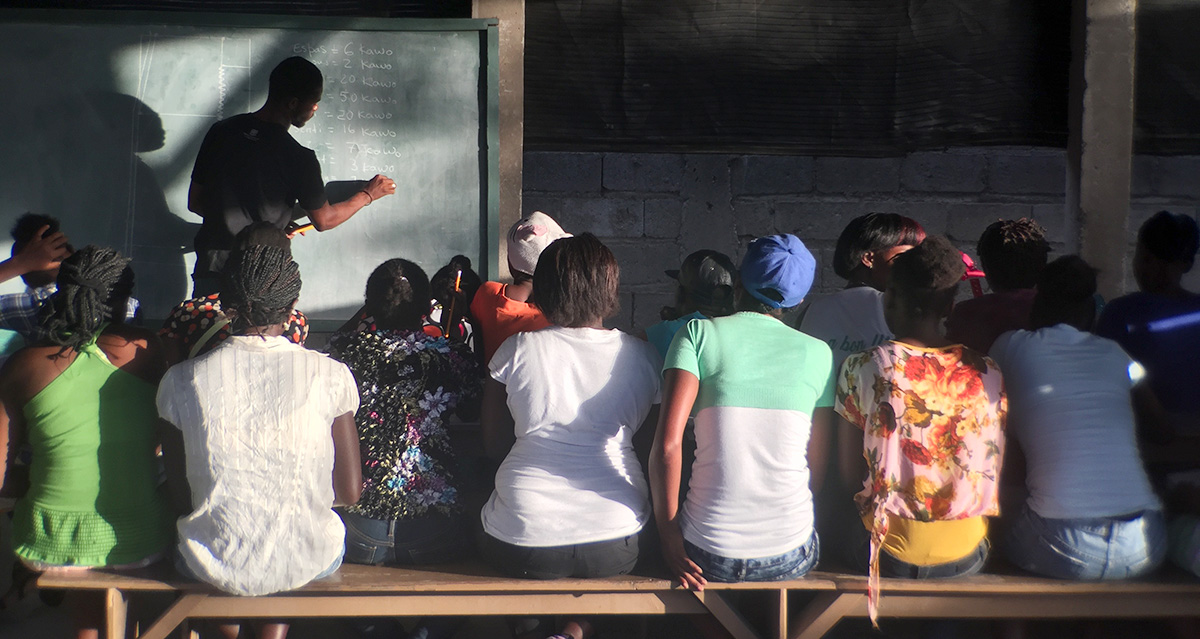
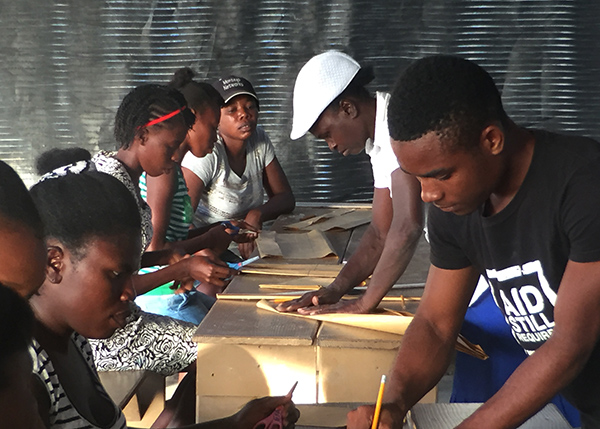
“Alpha” Adult Literacy & Vocational Training Program
Reno/Delma, Les Cayes, Haiti
“Once you learn to read, you will be forever free.”
—Frederick Douglass
Giving the gift of literacy
Literacy is rare in most marginalized communities in Haiti. Adults who can’t read, write, and count have little opportunity to earn a livable wage. Since 2015, through training in literacy and job-related proficiency, ASR’s ALPHA Program has been bringing new life to hundreds of highly impoverished men and women in the Les Cayes Reno/Delma shantytown. Years one and three of the ALPHA Literacy & Vocational Training were funded by The Economist Charitable Trust.
In an illiterate community region such as Reno/Delma, the ability to read and write marks a remarkable departure from the struggle to survive that has consumed the lives of our participants. Even the very concept of reading is foreign there: The only written words to be found in the area are “Lotto” and “Banc.” We do not believe there was a single book in the entire Reno/Delma community before ASR arrived.
We’re proud to report that numerous graduates of ALPHA Literacy are now Teaching Assistants in the program, helping their peers grow to self-sufficiency.
Additionally, vocational training, especially for illiterate and semi-literate adults, provides a clear pathway to self-reliance. The ALPHA sewing program is training young and old alike in manual sewing, making it possible for participants to run their own businesses, form companies together, or become employed.
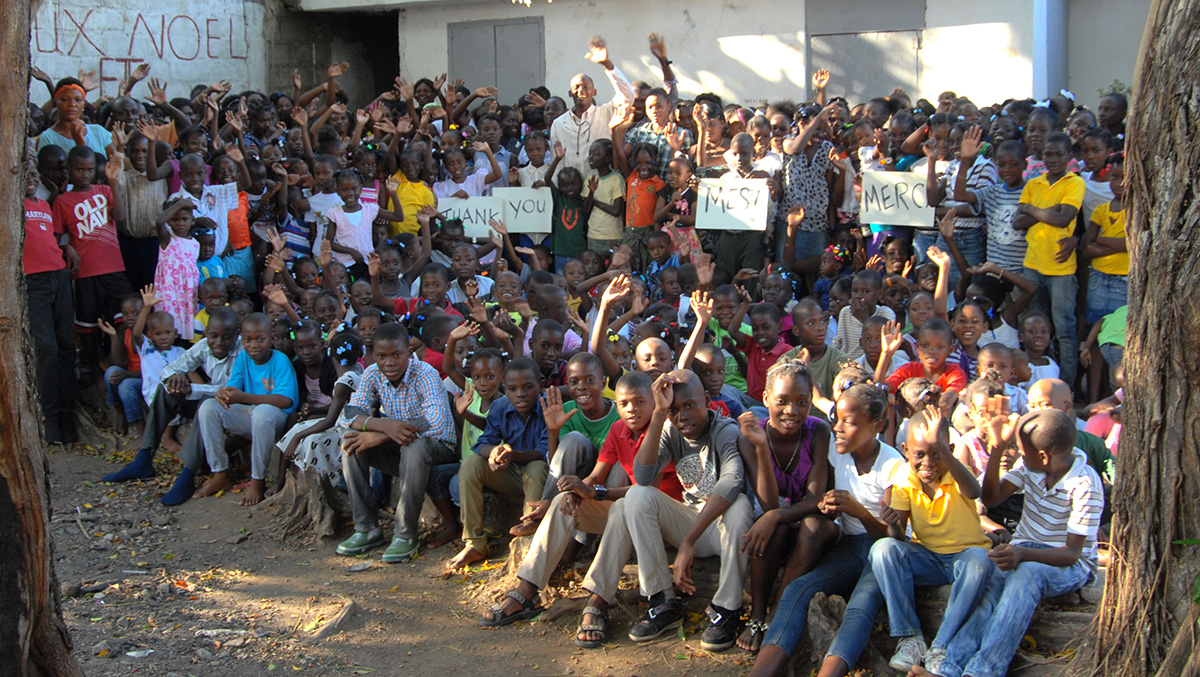
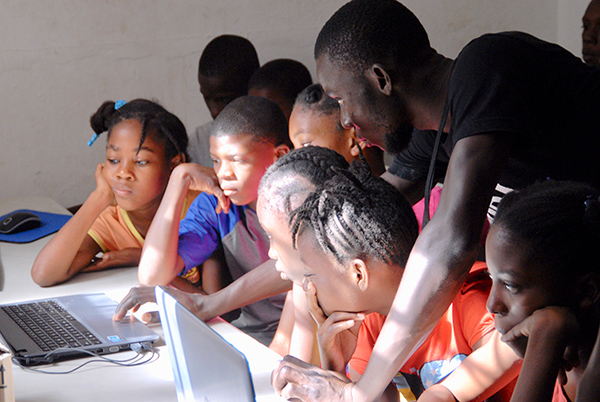
Club OADENN
Cap Haitien, Les Cayes, Haiti
“When our community is in a state of peace, it can share that peace with neighboring communities.”
—The 14th Dalai Lama
Bringing unmatched community activities to at-risk youth
The predictable future for children in Haiti’s inner-city communities is grim. Most have dropped out of school by sixth grade, if they ever attended school at all, and many have no home or adult supervision, making them particularly vulnerable to gangs, drug dealers, and prostitution rings.
ASR’s OADENN program provides more than 200 children with a wide range of activities, five days a week during the school year and every day during the summer months, to support individual growth and build community. Activities include:
- classes in English language, chorale, dance, sports, yoga and meditation
- computer training through one of ASR’s solar-powered computer labs
- a trilingual library and weekly book study groups, and
- field trips to historic sites.
Additionally, ASR furnishes tuition, books, backpacks, and shoes for 65 OADENN children who would not be able to attend school without this support. And we provide after-school remedial assistance for those behind grade-level.
OADENN parents engage in adult education activities, including yoga and meditation (necessary for healing trauma), computer training, and literacy classes. ASR has trained the community’s few literate parents to teach other community adults to read, write, and count. This approach has proven to be very rewarding for both trainers and students. We believe that this model for teaching adult literacy is unique to OADENN, and we hope to see it replicated in other Haitian communities.
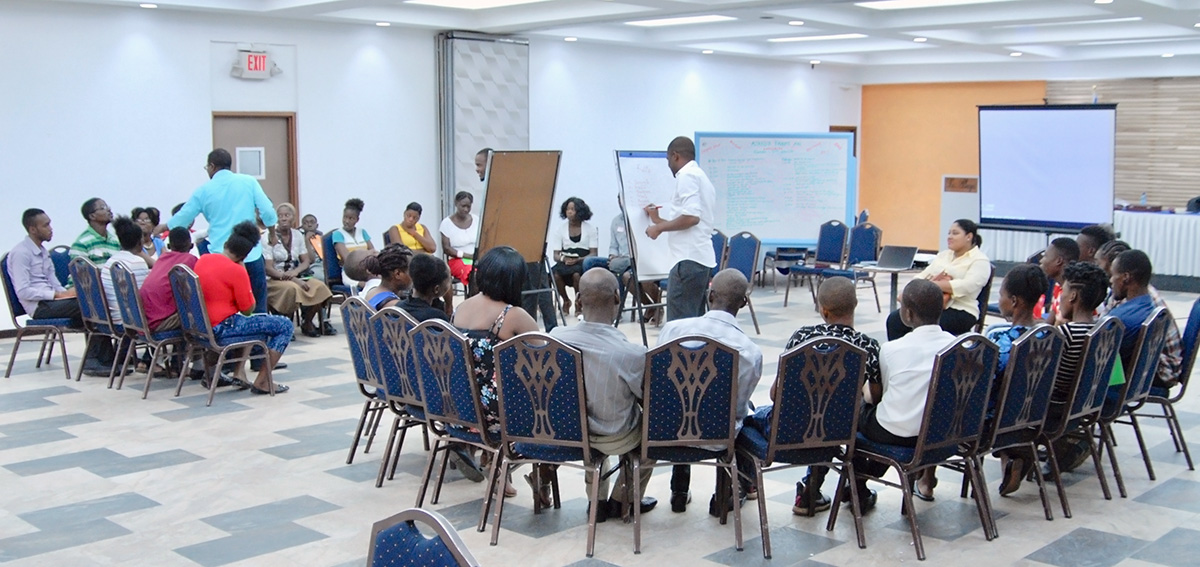
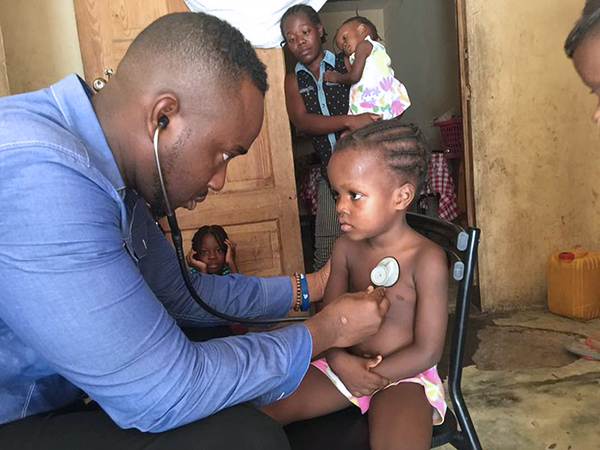
“Reunite and Get It Right” Orphan/Family Reunification & Self-Sufficiency Program
“We cannot all do great things, but we can do small things with great love.”
—Mother Teresa
Making families whole again
Most of Haiti’s orphans are “economic orphans,” in other words, one or both of their parents are living but cannot afford to care for their children. Since 2014, ASR has spearheaded the rescue of 28 maltreated children from an orphanage where the kids were often kept locked in a filthy alley, without water, food, or supervision.
The Reunite and Get It Right program has reintegrated these children with their families and is providing those families with new housing where needed; in-home medical care to ensure healthy, dignified, and prosperous futures; and tuition, books, and backpacks for the “orphans” and their siblings. Classes in literacy and best business practices, in conjunction with micro-lending and regular educational summits, are provided to all parents and other caregivers (pictured below).
The ultimate goal of the Reunite and Get It Right program is to move Haiti’s broken orphanage system into a new model, one that secures self-determination so that parents no longer need to give up their children.
100% of Your Donation Goes Straight to Programs
Make a donation now
 Aid Still Required
Aid Still Required